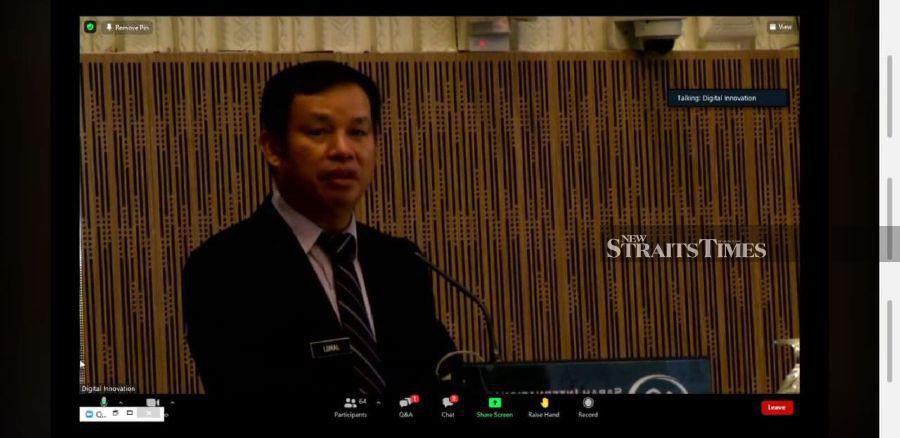By Olivia Miwil - March 25, 2021 @ 8:10pm
KOTA KINABALU: The conservation efforts in Sabah should also look into benefitting the local and surrounding communities.
Permanent Secretary of Sabah Tourism, Culture and Environment Ministry Dr Jamili Nais said there should be a shift from "fortress" to a more people-centric mentality.
"The parks system, not only in Sabah, Malaysia or elsewhere in the world, used to have this fortress mentality of having designated parks with boundaries and keeping whatever that is inside.
"The parks movement around the world has now moved to something that is called 'benefit beyond boundaries' instead.
"They often talk about the mantra 'benefits beyond boundaries', and 'prosper thy neighbor' with the hope that when the neighbors are prosperous, there will be no reason to intrude or encroach into the area," he said, referring such neighbours as the communities within and surrounding gazetted sites.
He was speaking during the closing of the International Seminar, Aspiring Kinabalu UNESCO Global Geopark at the Sabah International Convention centre here.
The National Kinabalu Geopark is expected to be listed as a world heritage site under UNESCO list by 2022. The Geopark will be the third site in Sabah with global recognition after Kinabalu park and the Crocker Range Biosphere Reserve.
Jamili, who is also the Sabah Parks director, said, the gazettement of the Kinabalu Park and its subsequent declaration as a world heritage site is about conserving and protecting the site and all of its attributes, within its boundaries.
"In contrast, the geopark concept is about working with the local communities, not only in protecting the geo-sites, but understanding them and utilising it sustainably.
"Geotourism is a huge part of this and in fact, this is the main attraction for the local communities," he said, referring to the 4,750 kilometre square-geopark site composed of Kinabalu Park, Kota Belud, Kota Marudu and Ranau.
Earlier, Sabah Mineral and Geoscience deputy director Dr Frederick Francis Tating said apart from Kinabalu Geopark, they had also identified six potential spots to be elevated as protected areas.
Those geoparks are Tawau-Semporna-Kunak, Lahad Datu, Telupid-Tongod, Kudat-Pitas-Banggi, Maliau-Imbak and Tambunan-Keningau-Tenom.
"Sabah is blessed with a vast diversity of geological, biological and cultural heritages for potential geoparks.
"Our department, as a government representative for geopark development is committed to play its roles in the development of future geoparks in the state."

Comments
Post a Comment